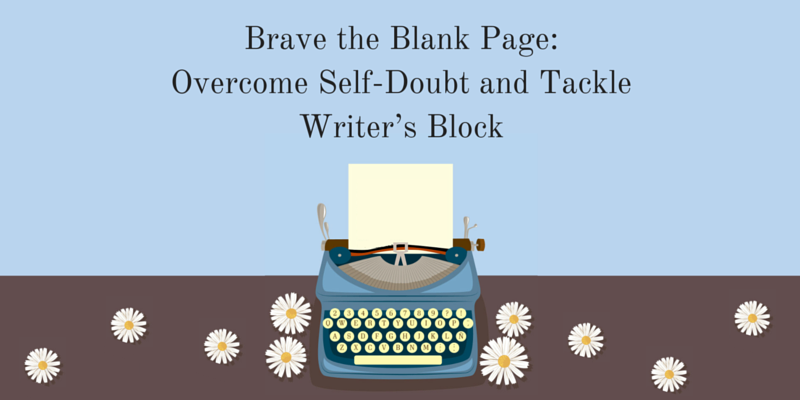The content marketing universe is magical indeed – it is open to everyone and everything, so even a small symbol such as hashtag can become immensely popular and fundamental. Today, almost every major platform takes advantage of hashtags for launching, moderating, and controlling online discussions.
You can hardly see a post on Instagram, Facebook, Twitter, and other networks without a few # symbols. It’s a huge trend that inspires a lot of marketers to ask a simple question: Are hashtags really so important and powerful? This is a big issue because everyone seems to use hashtags, but not everyone is able to explain their relevance.
If you are also wondering about the impact of hashtags on modern marketing, you’ve come to the right place. In this post, we will explain everything you need to know about hashtags and present their advantages and disadvantages. Let’s take a look!
Hashtags: Definition, Stats, and Platforms
Before we dig deeper into this concept, we want to discuss the background of hashtags and why they are here in the first place.
By definition, a hashtag is a word or phrase preceded by the symbol # that classifies or categorizes the accompanying text (such as a tweet). While the symbol itself has been known for decades already, it has officially become a social media phenomenon in 2007 when Chris Messina published this tweet:
“How do you feel about using # (pound) for groups. As in #barcamp [msg]?”
This is how it all started and turned the # symbol into a pillar of social media marketing. Twitter officially embraced hashtags in 2009 with the ultimate goal to make the content highly targeted, organized, and discoverable.
After that, other relevant networks also decided to adopt hashtags as the means of communication and user engagement. Facebook did it in 2013, while Instagram had it ever since the launch in 2010. Besides that, LinkedIn, Google+, Pinterest, and several other networks use hashtags as well.
Today, hashtags are considered to be more or less irreplaceable:
According to the report, 70% of hashtags on Instagram are branded.
Instagram posts with at least one hashtag average 12.6% more engagement than those without.
Pros and Cons of Using Hashtags
If planned and administered properly, hashtag-based campaigns guarantee lots of advantages. But this is not always the case so we need to discuss both the pros and cons of using the # symbol in your marketing activities. Let’s begin with the benefits:
Raise awareness: Top-performing brands distinguish themselves using branded hashtags. For instance, Red Bull is known for its #givesyouwings hashtag, while Coca-Cola made a huge success with the #ShareACoke campaign.
Increase discoverability: Jake Gardner, of the dissertation writing services, says hashtags are basically SEO components of social media marketing: “They enable users to search and find accounts, campaigns, or content among millions of other posts. As such, hashtags can help you to boost social discoverability.”
Cross-promotion: Since almost every relevant network uses hashtags, you can exploit the symbol to cross-promote campaigns on different platforms.
Build relationships: This is also an excellent way to launch new stories, build relationships with your audience, and drive customer loyalty long-term.
Report from live events: Almost every event has a dedicated hashtag that allows participants and interested audiences to keep in touch and discuss topics on the go.
Mark locations: Sometimes it is very important to address local followers. For instance, you can add #NYC to promote content and engage New York-based fans.
These and many other benefits make hashtags very influential in the world of digital marketing, but there are also a few downsides that we should mention. The cons of hashtag marketing include the following:
Hard to make a good hashtag: A good hashtag is supposed to be short, simple, unique, and effective. This is, of course, very hard to achieve. Only top-performing marketers can think of a standout hashtag that fulfills all of the requirements mentioned above.
It can have a counter effect: If you fail to create a good hashtag, it will probably turn out to be inefficient or even disastrous. This is the biggest problem with hashtags because they can have a huge counter effect. For example, you’ve probably heard of #susanalbumparty, also known as one of the biggest social media fails ever.
How to Come Up with a Quality Hashtag
You’ve seen what makes hashtags so critical to the success of digital marketing campaigns, but now it’s time to learn how to create a quality hashtag for your brand. One thing is for sure here – it mostly depends on your own inspiration and creativity, but we can give you a few essential tips to follow in every situation.
First of all, you should use the right words that perfectly represent you, your brand, products, or campaigns. Make it unique, but avoid acronyms because they are hard to interpret and usually make people confused.
At the same time, you should research your niche and competitors to find industry-specific hashtags. While you do want to design a standout hashtag, you must also exploit evergreen niche solutions that every customer is well aware of.
You can create hashtags single-handedly, but there are many digital tools that can assist you in the process. For instance, a platform like Hashtagify or RiteTag is able to analyze the existing solutions, identify popular hashtags, and give you suggestions on how to create the best hashtag for your campaign.
Once you’re done with hashtag creation, you should carefully select the right options for each post individually. Our advice is to avoid overloading content with hashtags because it is often considered to be a bad and spammy practice. Take Instagram for example: the platform allows you to add up to 30 hashtags, but top-performing brands rarely ever add more than five or six to their posts.
Conclusion
Hashtags represent only a small digital character, but they still make a big impact on contemporary marketing. Marketers all over the world use this symbol to raise awareness and maximize the discoverability of their brands, but the benefits of hashtags go beyond that.
We created this article to explain the power of hashtags in digital marketing, their pros and cons, and how to make a good hashtag for your campaigns. We hope it helps you to understand how hashtags function, but feel free to leave a comment if you have any questions – we would be glad to answer!
Author Bio
Michael Gorman is a digital marketer and a blogger at EduGeeks Club. He is also a part-time content contributor at essay services like Essay Writers Online and RushMyEssay. Michael specializes in social media marketing, but he is no stranger to topics such as self-improvement and personal development. When he is not working, Michael is probably out jogging in the local park. You can feel free to contact Michael on Twitter and Facebook.












![What is good content? Follow These 9 Pillars [Hint: It's easier than you think]](http://getspokal.wpengine.com/wp-content/uploads/2013/04/wpid-7a1f0b69c98643c8b4fc9402a658650e.jpg)